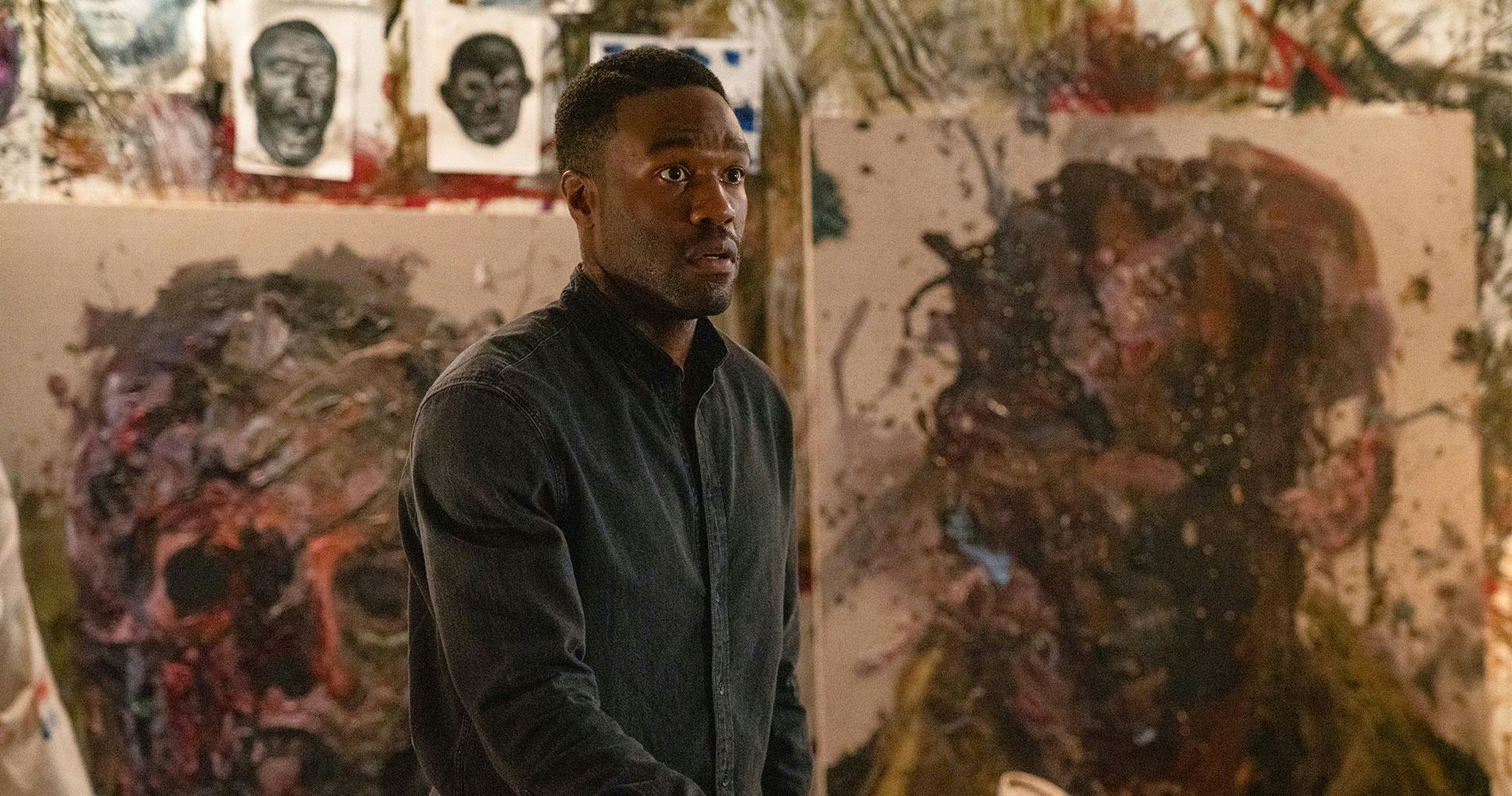
(This story has small spoilers from the film Spiral: From the Book of Saw.)
Jordan Peele is bringing back Candyman on August 27, and this time the legendary monster that probably gave you an unnatural fear of mirrors is coming with an origin story steeped in police brutality.
In the trailer, William Burke, played sinisterly by Fear of the Walking Dead star Colman Domingo, explains the lore of the Candyman myth. As legend has it, a Black man who would hand out candy to neighborhood kids was brutally beaten, tortured and murdered by police officers after a few children found razor blades in their candy. A few weeks after the man’s death, more razor blades were found in more candy, seemingly proving the dead man’s innocence. That’s when Burke remarks “Candyman isn’t a he. Candyman is the whole damn hive,” as we see a gaggle of police officers. No punches were pulled in this trailer. Candyman will, in some way, explain how a police department created a monster that still wreaks havoc on a community.
Peele’s version of Candyman, directed by Nia DaCosta, is being promoted as a “spiritual sequel” to the film series that began with Bernard Rose’s classic 1992 Candyman film. In Rose’s version, the soul of a former slave and artist from the 19th century is transferred to a mirror after a racist lynch mob murdered him for fathering a child with the daughter of a white landowner. In that film, Candyman begins murdering people after graduate student Helen Lyle (Virginia Madsen) begins discrediting his existence. Peele’s version has a different form, but shares the same spirit of its predecessor.
This new film follows visual artist Anthony McCoy, played by Watchmen’s blue god disguised as a Black man Yahya Abdul-Mateen II, who begins including the terrifying spirit of Candyman in his work after learning of Candyman’s origin in the gentrified Cabrini-Green neighborhood in Chicago. Once you saw Peele’s name attached to the film, you had to expect his signature brand of socially aware horror writing from Get Out would be infused in the disturbing story of a Black monster created from a lynch mob. It’s just this time, the lynch mob appears to have been the police, and Candyman appears to be more of a mentality born from racially charged hatred.
The scariest horror stories are the ones that feel real, and as of late, Hollywood is turning the perpetual nightmare of police brutality into horror films. Director Darren Lynn Bousman recently revamped the Saw franchise with the new Spiral film starring Chris Rock and Samuel L Jackson. Rock plays Detective Zeke Banks and he experiences police corruption including unarmed men being shot dead by police officers. The film was written in 2018 and filmed in 2019, prior to the wave of Black Lives Matter protests of 2020 surrounding police-involved killings of George Floyd and Breonna Taylor. But, Bousman himself said in an interview that the Saw revival film was focused on how “our killer was not going after necessarily an individual, but a bigger idea,” in the form of police corruption.
Last summer, Mary J Blige starred in the film Body Cam centered around Los Angeles Police Department officers who were haunted by spirit tied to the covered up murder of deaf Black kid. The film is largely forgettable but moments like Blige’s character Renee Lomito-Smith finding hidden body camera footage of the kid’s murder that started the entire torment hit close enough to home to break anyone’s heart. Watching video of police take human life by choking them, placing their knee on their neck, or outright shooting unarmed people has turned from a national nightmare to a disturbing rerun of a horror film that no one asked to watch, let alone be part of. Candyman and this recent trend of police-centered villainy in film pairs real-life terrors with imagined ones to ask audiences to choose which one is worse.
The scariest part of police brutality becoming the center of horror films is the imagined terror sometimes pales in comparison to the gruesomeness of the real life terrors. But, that’s also why these sort of horror films need to be made, to make sure we never get so desensitized by the regularity of police brutality that we forget how inhumane it truly is.







